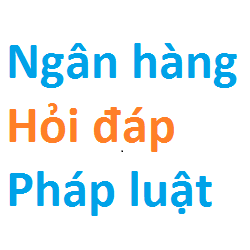Can judgments of the old regime be considered sources of evidence in civil proceedings in Vietnam?
 Bấm vào đây để xem bản dịch tiếng Việt của bài viết này
Click HERE to see the Vietnamese translation of this article
Bấm vào đây để xem bản dịch tiếng Việt của bài viết này
Click HERE to see the Vietnamese translation of this article
Can judgments of the old regime be considered sources of evidence in civil proceedings in Vietnam? Do people who are not involved in a civil case have right to hand over evidences in Vietnam? What is implementation of identifying evidences in Vietnam?
Hello, let me ask if there is a dispute between me and my neighbor, I have evidence that this land I have used stably for a long time from the previous regime until now, there is a judgment of the old regime that records the problem about this topic. So let me ask if the court requires the submission of evidence, will the judgment of the old regime be considered a source of evidence?
Please advise. Thankyou.
Can judgments of the old regime be considered sources of evidence in civil proceedings in Vietnam?
In Article 94 of the 2015 Civil Procedure Code, there are provisions on sources of evidence as follows:
Evidences are gathered from the following sources:
1. Readable, audible or visible materials, electronic data;
2. Exhibits;
3. Involved parties' testimonies;
4. Witnesses' testimonies;
5. Expertising conclusions;
6. On-site appraisal minutes;
7. Property evaluation and price appraisal results;
8. Written records of legal facts or acts that are formulated by functional persons;
9. Notarized/authenticated documents;
10. Other sources prescribed by law.
According to current regulations in Vietnam, the judgment of the old regime is considered readable document. Therefore, this can be considered as a source of evidence.

Do people who are not involved in a civil case have right to hand over evidences in Vietnam?
Article 93 of the 2015 Civil Procedure Code provides for evidences as follows:
Evidences in civil cases are factual things which are handed to Courts by involved parties, agencies, organizations or individuals or gathered by Courts according to the order and procedures prescribed by this Code and are used by Courts as bases to determine objective details of the cases as well as to determine whether the involved parties' claims or protests are well grounded and lawful or not.
According to this Article, individuals and organizations not related to the civil case can still hand over evidence in Vietnam.
What is implementation of identifying evidences in Vietnam?
In Article 95 of the 2015 Civil Procedure Code, there are provisions on identifying evidences as follows:
1. Contents-readable materials shall be regarded as evidences if they are originals or copies lawfully notarized or authenticated or supplied and certified by competent agencies or organizations.
2. Audible, visible materials shall be regarded as evidences if they are presented together with documents about the origins of such materials (applicable to materials recorded by the presenting persons themselves) or the documents certified by the one providing such materials for the presenting persons about the origins of those materials or documents related to such audio and/or video recording.
3. Electronic data shall be presented in form of exchange of electronic data, electronic invoices, electronic mails, telegram, telegraphy, facsimile and other similar forms according to legislation on electronic transactions.
4. Exhibits to be regarded as evidences must be the original and related to the cases.
5. Involved parties' testimonies, witnesses' testimonies shall be regarded as evidences if they are recorded in writing or in audio-tapes, audio-discs, or video-tapes or discs or other audio or image recording devices as provided for in Clause 2 of this Article, or are given orally in Court sessions.
6. Expertising conclusions shall be regarded as evidences if the expertise is conducted in accordance with the procedures prescribed by law.
7. On-site appraisal minutes shall be regarded as evidences if the appraisal is conducted in accordance with the procedures prescribed by law.
8. Property evaluation results and price appraisal results shall be regarded as evidences if the evaluation/appraisal is carried out in accordance with the procedures prescribed by law.
9. Written records of legal facts or acts that are formulated on site by functional persons shall be regarded as evidences if the formulation of such records is carried out according to the procedures prescribed by law.
10. Notarized/authenticated documents shall be regarded as evidences if the notarization/authentication is conducted according to the procedures prescribed by law.
11. Other sources prescribed by law shall be determined to be evidences according to requirements and procedures prescribed by law.
Thus, the identifying evidences in civil proceedings is done in accordance with the above provisions in Vietnam.
Best Regards!
-
Editorial Board of LawNet
- Số 19 Nguyễn Gia Thiều, P. Võ Thị Sáu, Q.3, TP. HCM.
- Click to See more

